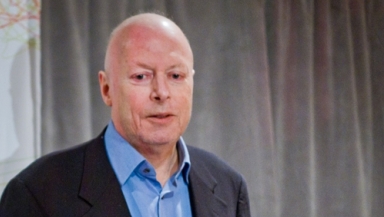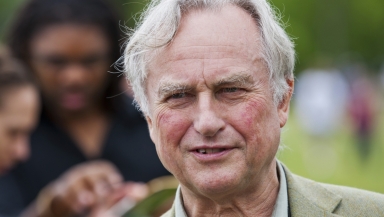
Excitable reports on social media resurfaced this week. One of the world's most famous and strident non-believers may have had a deathbed conversion. It seemed incredible. Had Christopher Hitchens, atheist pugilist, really accepted the truth of Christianity in his dying moments?
Well, we'll never know. The claims were made by Larry Taunton in his new book. When he appeared on the BBC, he suggested that Hitchens was "contemplating conversion". Though there's some evidence for this, it is a long way from being a record of a deathbed repentance (and Taunton himself has clarified that he didn't mean Hitchens had "accepted God").
It's easy to see why this would be big news. One of the 'four horsemen' of the New Atheism (the only one to die so far) had considered conversion before he passed away. If it was possible for Christopher Hitchens to change his mind, then so might Dawkins, Dennett, Harris and the atheist empire would crumble like a pack of cards.
While fascination with the supposed conversion is understandable, it's also a bit pointless. As Gareth Evans writes, "The spreading of fallacious rumours of deathbed conversions by the religious is predictable because there is so much historical precedent for it. Many of history's most famous atheists have suffered this fate, so, in a sense, Hitch has now been inducted into this hall of infamy alongside the likes of Darwin, Thomas Paine, and David Hume."
Evans cites Hitchens' God is not Great, in which he wrote that "the mere fact that such deathbed 'repentances' were sought by the godly, let alone subsequently fabricated, speaks volumes of the bad faith of the faith-based".
Hitchens even pre-empted the idea that he would convert on his deathbed, saying: "If that comes it will be when I'm very ill, when I'm half demented either by drugs or by pain when I won't have control over what I say. I mention this in case you ever hear a rumour later on, because these things happen and the faithful love to spread these rumours."
His comrade at arms Richard Dawkins has taken things one step further. He says he'd like his deathbed to be witnessed and recorded to ensure that no similar claims are made about him.
What is it that makes this such a hotly contested issue? Why do these rumours swirl around? Why are they met with such fierce denials?
It seems many Christians are reluctant to accept that people die without converting, almost as if it's an admission of failure. Hitchens, in many ways seen by some Christians as the captain of the opposition team, would be a great coup to have pulled into the camp at the last minute. That the man who debated believers of all kinds might have acquiesced to their arguments at the last is superficially attractive. Yet, are we really going to throw our lot in with those who don't let the facts get in the way of a good story?
On the other side, some atheists may have an aversion not just to the idea of a deathbed conversion itself but to what it represents. The idea that someone can live their whole life without being a Christian and then make a decision to believe at the last minute is seen as incredible, and not just because of the perceived duplicity of it (the idea that you can 'do as you please' for 80 years and then wipe the slate clean as the reaper swings the scythe). It also appears that, to some atheists, the concept of grace is troubling.
When the criminal dying at Jesus' side on the cross said, "Jesus, remember me when you come into your kingdom," Jesus didn't reply, "Sorry, you're too late. You've lived an ungodly life and a late conversion isn't going to be enough for you. Instead he said, "Truly I tell you, today you will be with me in paradise."

This is grace writ large. Whatever you have done, however bad your life has been, if you turn to Jesus and ask for forgiveness genuinely, then He forgives.
This is an affront to many of us, not only those who've lived our lives as 'good Christians'. Others who've lived a life where they've tried to do the right thing and behave in a moral way can find such grace scandalous. Think of the older brother in the story of the Good Samaritan. He is incredulous, saying to his father, "Look! All these years I've been slaving for you and never disobeyed your orders. Yet you never gave me even a young goat so I could celebrate with my friends. But when this son of yours who has squandered your property with prostitutes comes home, you kill the fattened calf for him!"
The Father replies, "My son... you are always with me, and everything I have is yours. But we had to celebrate and be glad, because this brother of yours was dead and is alive again; he was lost and is found."
This reply is one which hopefully will shape us, whether we're Christians or non-believers. A Christian response to a deathbed conversion should be happy – but not triumphalist. Meanwhile atheists, even of the militant variety, should adhere to their free-thinking and open-minded reputation and never rule out the possibility of a late change of heart. Stranger things have happened. The thief on the cross told us that much...
Follow Andy Walton on Twitter @waltonandy















